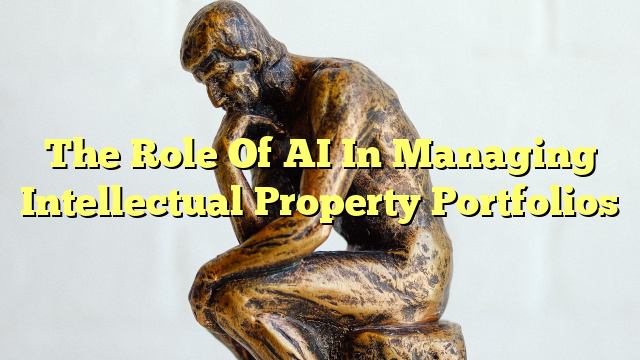Table of Contents
Introduction
Artificial Intelligence (AI) has become an increasingly important tool in various industries, and its role in managing intellectual property (IP) portfolios is no exception. In this article, we will explore the role of AI in IP management and discuss its implications for the future.
The Role of Artificial Intelligence in Intellectual Property
AI has the potential to revolutionize the way intellectual property is managed. With its ability to analyze large amounts of data and identify patterns, AI can assist in tasks such as patent searches, prior art analysis, and trademark monitoring. By automating these processes, AI can save time and resources for IP professionals, allowing them to focus on more strategic and complex tasks.
AI and Intellectual Property Dynamics
The integration of AI in intellectual property management is expected to change the dynamics of the field. AI can help identify potential infringements and assist in enforcing IP rights. It can also provide insights into market trends and competitor activities, enabling companies to make more informed decisions regarding their IP strategies. However, it is important to note that AI is a tool and should be used in conjunction with human expertise to ensure accurate and reliable results.
Can AI Own Intellectual Property?
Currently, AI cannot own intellectual property rights. Intellectual property is granted to human creators, and AI is considered a tool created by humans. However, there are ongoing debates and discussions regarding the legal and ethical implications of AI-generated works. As AI technology continues to advance, it is possible that laws and regulations may evolve to address these issues.
The Relationship Between AI and IPR
The relationship between AI and Intellectual Property Rights (IPR) is complex. On one hand, AI can help protect and enforce IPR by identifying potential infringements and assisting in legal proceedings. On the other hand, AI itself can be the subject of IPR, with companies seeking to protect their AI technologies through patents and other forms of intellectual property protection. It is crucial for IP professionals to stay updated on the evolving relationship between AI and IPR to effectively manage and protect their IP portfolios.
Conclusion
AI has the potential to revolutionize the management of intellectual property portfolios. By automating tasks and providing valuable insights, AI can enhance efficiency and effectiveness in IP management. However, it is important to recognize that AI is a tool that should be used in conjunction with human expertise. As AI technology continues to advance, it is crucial for IP professionals to stay informed and adapt their strategies to leverage the benefits of AI while ensuring the protection and enforcement of intellectual property rights.

